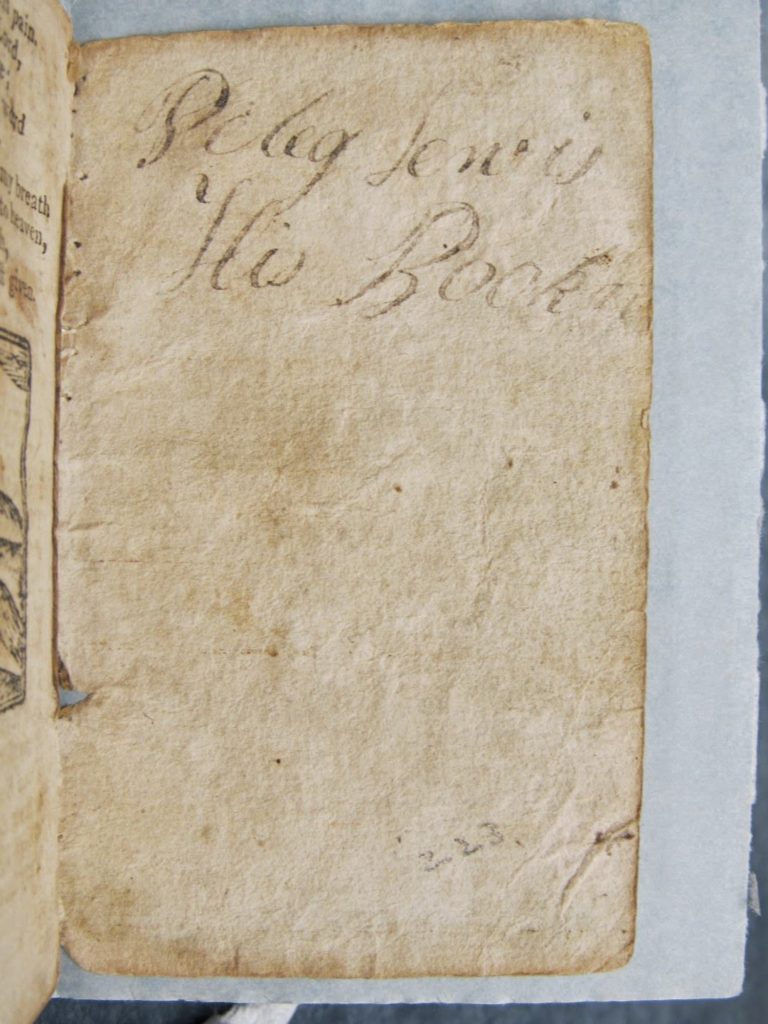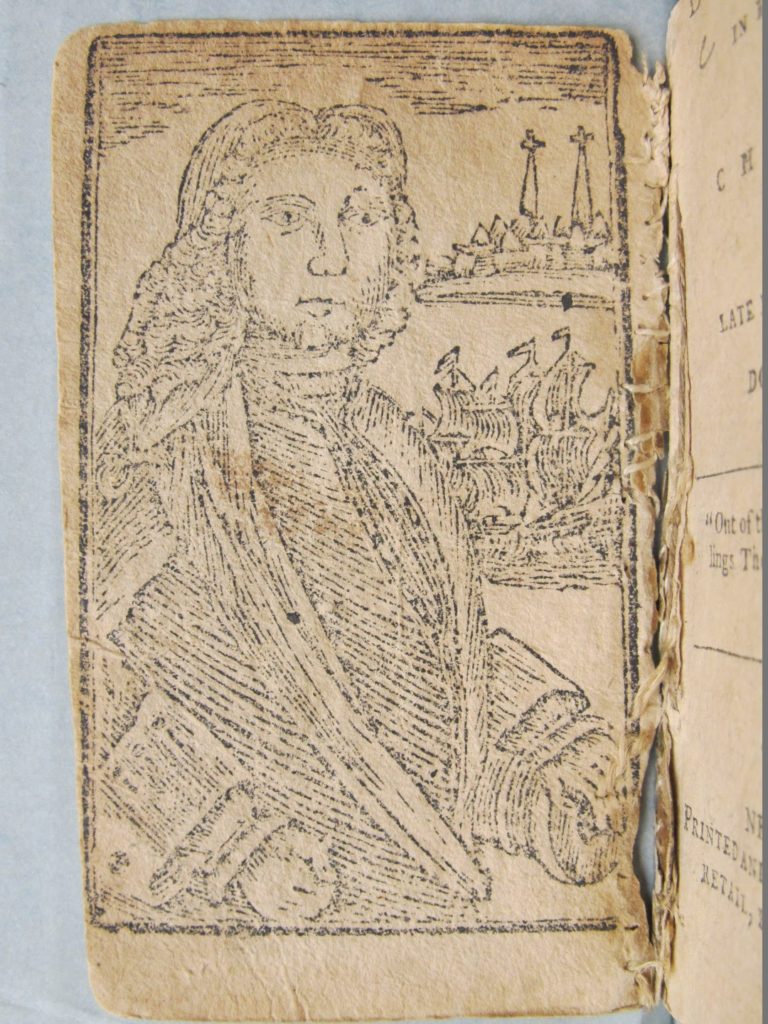What do Joy to the World, How Doth the Little Busy Bee, When I Survey the Wondrous Cross, and I Sing the Mighty Power of God have in common? They were all written (the texts at least) by Isaac Watts, who was born on July 17, 1674, and so would turn 340 today (if you don’t worry about calendar changes). Despite coming from a Non-Conformist background, a tradition which promoted metrical psalm-singing and discouraged hymns, Watts became the “Father of English Hymnody” and many of his songs are still in use today. He wrote many hymn books, and his children’s book Divine songs, in easy language, for the use of children is included in our current exhibition Bescribbled, Nibbled, and Dog-eared: Early American Children’s Books.
Divine Songs, which includes both the Busy Bee (actually titled “Against Idleness and Mischief”) and I Sing the Mighty Power (actually titled “Praise for Creation and Providence”), was incredibly popular. It was first published in England in 1715 and scores of American editions followed (Dr. Rosenbach’s collection included ten). Not only was it printed as a stand-alone piece, but as Dr. R. pointed out in his catalog:
forcing these poems on the attention of the children, and selections from them
were almost invariably used by printers to fill up the blank pages of any
nursery book on no matter what subject.
The ubiquity of Watts’s poems is highlighted by Lewis Carroll’s choice to parody them in Alice in Wonderland, which was published exactly 150 years after Divine Songs first appeared. At one point Alice tries to recite How Doth the Little Busy Bee, a verse that would have been known to every school child, but instead end up with How Doth the Little Crocodile.
The copy of Divine Songs in Bescribbled dates from 1796 and bears the bold signature of its former owner, which appears to read Peleg Lewis.
 |
|
Isaac
Watts (1674-1748), Divine songs, in easy language, for the use of children
New-London
[Conn.]: Printed and sold …, by James Springer, 1796
RBD ROS
223
Rare
Book Department, Free Library of Philadelphia |
For more about Watts, check out Hymnary.org, which has a biography, as well as a list of his hymns and their popularity, as measured in their occurrence in hymn books.You can also find an online version of an 1866 printing of Divine Songs at archive.org.

Kathy Haas is the Associate Curator at The Rosenbach of the Free Library of Philadelphia and the primary poster at the Rosen-blog.

